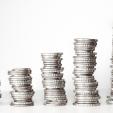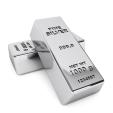Dollar sandbagged by US politics, stocks put up a fight
SYDNEY-AUSTRALIA (Oct 4) The U.S. dollar sagged to eight-month lows on recently as the U.S. government shutdown dragged on with no end in sight, though share markets found comfort in expectations major central banks might now have to keep monetary policy super-loose for longer.
Also helping sentiment was an upbeat survey on China's huge services sector, an antidote to a disappointing report on manufacturing earlier in the week.
MSCI's broadest index of Asia-Pacific shares outside Japan swung 1 percent higher, with Taiwan, the Philippines, Indonesia and India all sporting gains.
Japan's Nikkei recovered its early losses, while Australian shares added 0.5 percent. Futures for the S&P500 were barely lower while spreadbetters predicted steady starts for bourses in the UK, Germany and France.
The resilience was impressive given a meeting between U.S. President Barack Obama and congressional leaders produced nothing but blame and counter-blame, dimming hopes of an early end to the budget impasse.
So far, investors have been wagering that a deal would be reached in time to avoid lasting damage to the economy, although another fight over the debt ceiling still looms.
The ceiling is far more important than the shutdown since it could lead to an unprecedented default by the United States, an outcome the market assumes is unthinkable.
"To the extent that we have never been in a situation where the debt ceiling has not been raised, there is a high degree of uncertainty over how events will transpire," said Elliot Clarke, an economist at Westpac in Sydney.
"That said, what is plainly evident is that a protracted stalemate would have a significant impact on the US economy."
Already one effect has been to further cloud the outlook for when the Federal Reserve will start scaling back its asset-buying programme.
Eric Rosengren, head of the Federal Bank of Boston, said on Wednesday that the government shutdown could further delay a tapering because of a lack of official data on the economy.
That only amplified the startling swing in market thinking about the future course of U.S. interest rates.
Just a month ago, the futures market had predicted the Fed funds rate would be up around 1.465 percent by the end of 2015. Now it implies a rate of just 0.745 percent.
That in turn has helped drag yields on the benchmark 10-year U.S. Treasury note down to 2.626 percent, from a September peak of 2.99 percent.
In contrast to the increasingly dovish outlook for U.S. rates, the European Central Bank (ECB) on Wednesday left interest rates unchanged and gave no hint it was considering further easing.
The dollar's diminishing yield advantage saw it peel off to a new eight-month trough against a basket of currencies at 79.827. The euro in turn climbed to an eight-month high at $1.3625, bringing in sight the 2013 peak of $1.3711.
The dollar did gain some traction on the yen, but only because Japanese investors were selling their currency for euros. Thus while the dollar steadied at 97.65 yen, the euro rose more than half a yen to 132.86.
A notable mover was the New Zealand dollar, which rallied after the Reserve Bank of New Zealand said larger increases in interest rates would be needed if new limits on mortgage lending fail to cool the country's housing market.
The kiwi jumped to $0.8308, pulling well away from a low of $0.8194 plumbed on Wednesday.
Trading was very choppy in commodity markets, though the lower dollar tended to support prices.
Gold steadied at $1,310.92 an ounce, having bounced from a low of $1,278.24 on Wednesday. Copper futures held their gains to stand at $7,270.50 a tonne.
Oil prices edged off after a jump on Wednesday. Brent crude for November eased 41 cents to $108.78 a barrel, while U.S. crude slipped 47 cents to $103.63.













